
Scents and Sensibility: The Health Dangers of Candles and What to Use Instead
September 2, 2025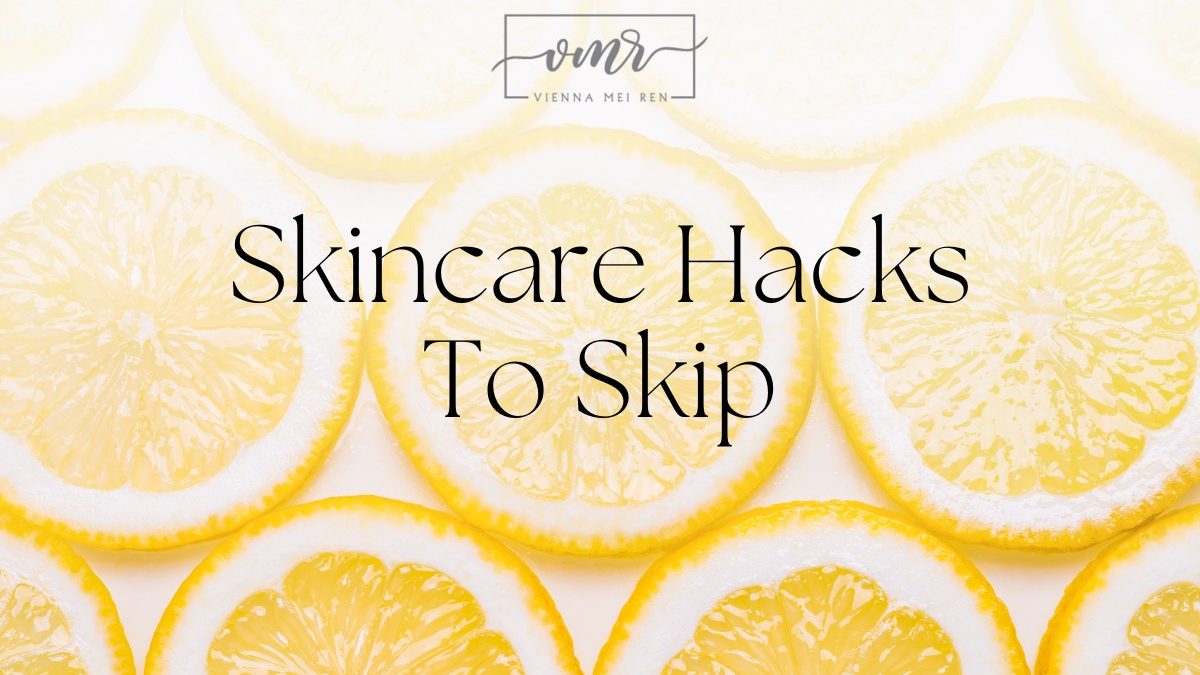
DIYs You DON’T Want to Try
So you’re in your doom scroll of the day and land yourself in the DIY section of the internet. We’ve all been there. Faced with a host of tempting skincare “hacks”, you opt to give one a try. What could go wrong?
The reality is, a whole lot!
While we’re definitely fans of making some things yourself (like DIY home scents, foot baths, and facial steams, to name a few), many of these so-called “hacks” online run the gamut from useless to downright dangerous.
That’s right: these hacks can leave your skin worse than before. Think skin barrier damage, burns, infections, and more.
So before you go full Pinterest on your face, read on as we dissect some of the most common online skincare tips and hacks.
Steer Clear of these Online Skincare Hacks
Part One: Irritating Ingredients
One of the biggest problems with DIY skin tips and hacks from the internet is that they often ignore how ingredients actually interact with your delicate facial skin. Just because something is natural or edible doesn’t mean it belongs on your face!
So let’s put the sandwich toppings down and get into a few of the worst DIY skincare ingredients.
🆇 Lemon Juice for Skin Brightening
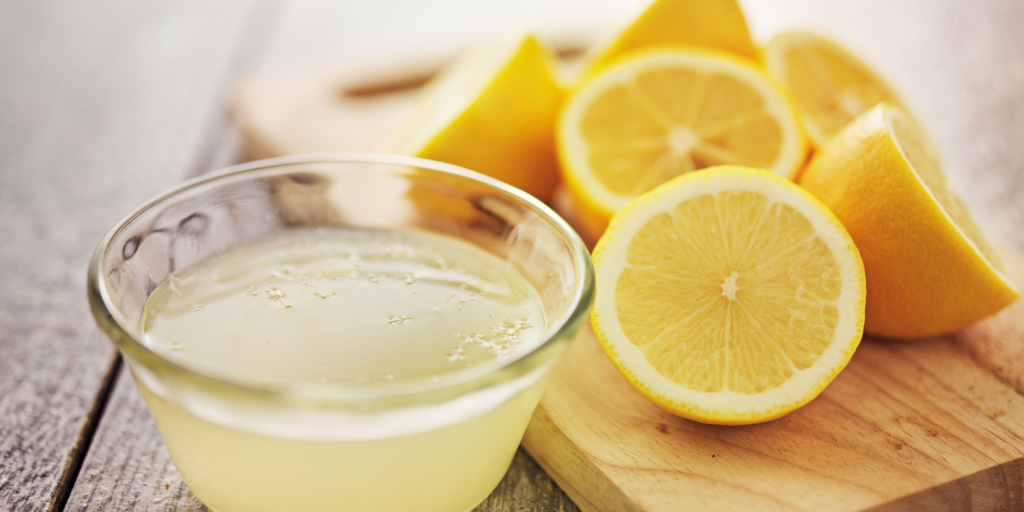
Lemon juice can be incredible for health when taken internally, and many of lemon’s chemical components can be extracted for their health benefits.
HOWEVER, using lemon juice on your face to brighten skin just isn’t worth the risk. Here’s why–
Lemon Juice can Affect your Skin’s pH
Your skin has a pH of around 5.5, which helps maintain its natural oil balance and protect it from pathogens.
Lemon juice on the other hand is highly acidic, with a pH of 2 to 3.
Using lemon juice on your face throws off your skin’s natural pH. This can cause irritation, inflammation, burns, hyperpigmentation, skin barrier damage and increased sensitivity.
Basically? Lemon isn’t basic enough!
Photoxicity from Lemon Juice
Many citruses including lemon can cause phytophotodermatitis. Compounds in the lemon juice can cause your skin to become more sensitive to light. When exposed to UVA radiation from the sun, a phototoxic reaction occurs. This reaction ranges, but can include severe blisters, inflammation, and hyperpigmentation.
Convinced yet? Citrus juice skincare hacks are lemons!
🆇 Apple Cider Vinegar as a Skin Toner
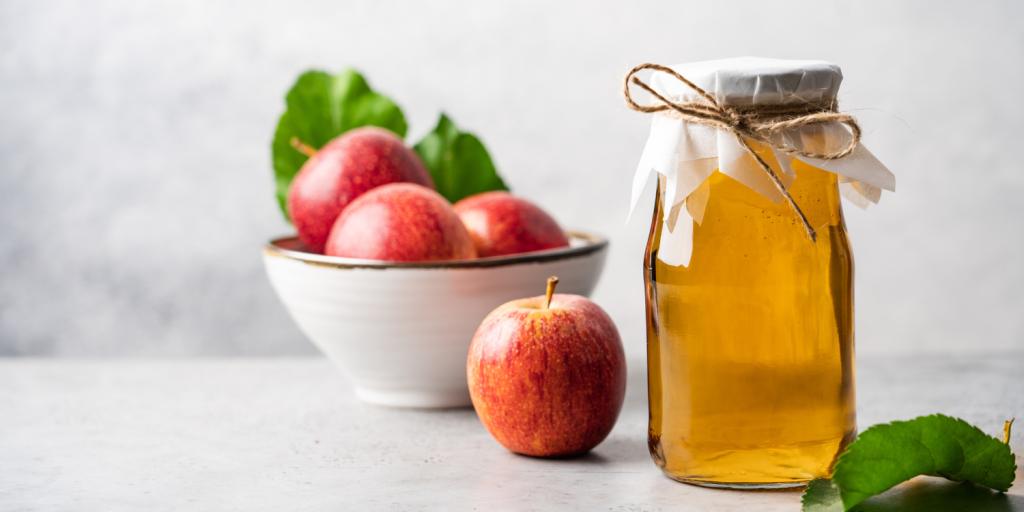
This one was quite popular for a while, claiming that ACV’s astringent properties made it a great facial toner. The reality? This hot tip is a great way to give yourself chemical burns.
ACV is too Acidic
ACV has a similar pH to lemon juice. Being highly acidic, it can disrupt your skin’s natural pH, contribute to irritation and inflammation, and even cause chemical burns. Ouch!
Skip the ACV and choose a toner that supports your skin’s pH balance, like VMR’s Clarifying Toner.
🆇 Raw Potato to Improve Skin

Need we say more?
There’s a trend going around where people are rubbing raw potato on their faces, claiming their nutrients help to improve skin.
This Hack is Baked
The reality? There’s no clinical benefits to this “hack”, and you’re just as likely to cause yourself skin irritation as anything else.
While this skinfluencer hack isn’t particularly harmful, it’s not helpful either (and it’s pretty bizarre).
🆇 Raw Egg to Tighten and Firm Skin
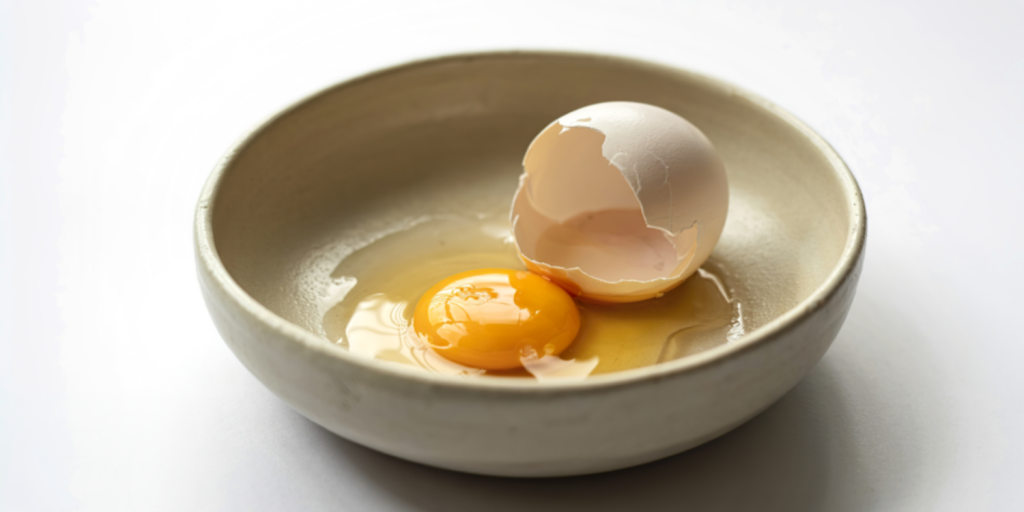
Eggs? In THIS economy??
That’s right: beauty influencers claim that raw eggs help tighten pores, firm skin, balance oil, and more.
The reality? Egg on your face isn’t supposed to be a good thing; and in this case, it really isn’t.
Skin Irritation and Allergic Reactions
The most common issues with using raw egg on your face are irritation and the risk of an allergic reaction. Even if you don’t have issues with cooked eggs, raw eggs can trigger severe allergic reactions.
Infection Risk
Raw eggs are a breeding ground for harmful bacteria like salmonella. Using them on your face can cause infection, particularly if applied to irritated skin or open wounds.
The risks outweigh the benefits on this skinfluencer tip!
Part Two: DDIYs (Don’t Do It Yourselfs)
There’s a time and a place for DIY, but your skin care isn’t it!
🆇 Exfoliators and Scrubs
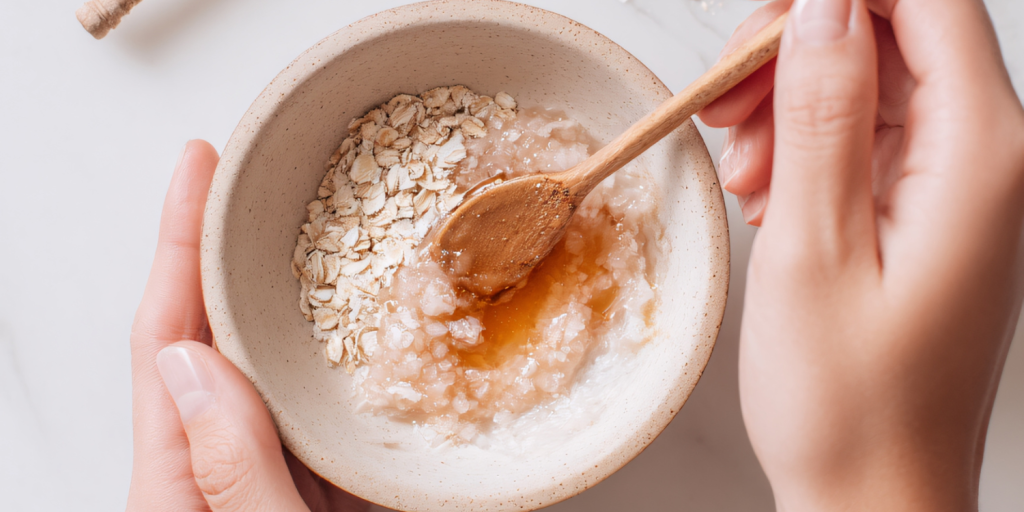
We don’t want no scrubs… not this kind, anyway! While they’re fine for your body, common DIY scrub ingredients like oatmeal, sugar, salt, and coffee are simply too abrasive for the thin, delicate skin on your face.
Although a certain “Apricot Scrub” (which shall not be named) made us all think harsh facial exfoliants are where it’s at, these large, uneven particles can irritate and even damage your skin. Think inflammation, sensitivity, breakouts, premature aging… basically everything you want to avoid.
Looking for a great facial exfoliator? Give our Intensive Radiance Scrub a try! And if you want to learn more about how to exfoliate the right way, check out our blog on the topic.
🆇 Facemask Foibles
There’s nothing quite like a face mask to make you feel like you’re taking good care of your skin and yourself. Unfortunately, some of the most popular DIY face masks can leave your skin in worse shape than before. Here are 3 to steer clear of:
1. Charcoal and White Glue Peel-Off Mask
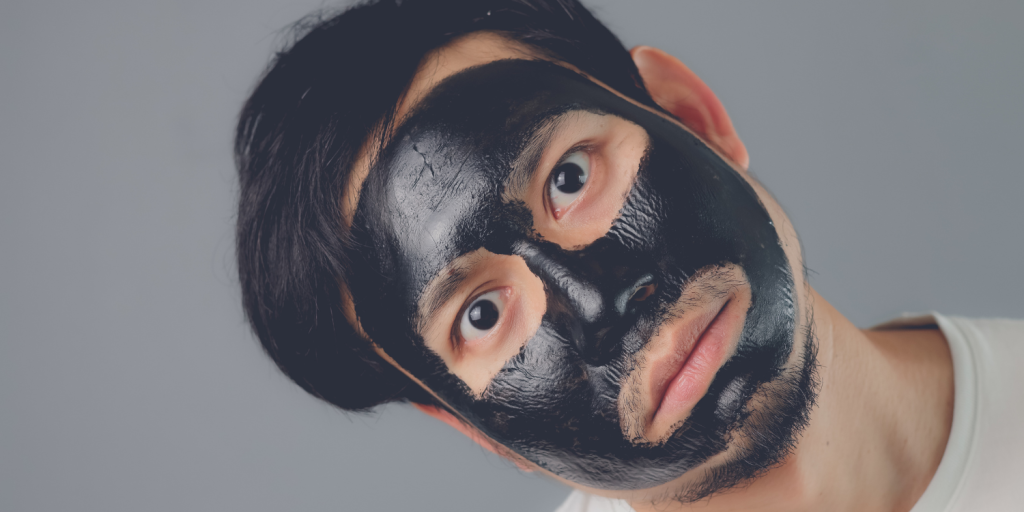
Ok, so this one is pretty dated. But in case anyone was even thinking about trying it, let us turn you off the idea. There’s a reason this trend died out, and we’re hoping it stays that way.
The claim? Charcoal will “detox” your skin and the peeling will work something like a pore strip to remove blackheads.
The process? Mix glue and activated charcoal, apply to face, let dry, and peel off.
The reality? Ouch.
The science behind activated charcoal and skincare is a little shaky to begin with, and adding glue to the mix ruins any possible benefit.
While white school glue is generally labeled “non-toxic”, it most certainly isn’t made for skincare and can cause irritation and even allergic reactions.
And lest we forget, peeling this concoction off your face was a nightmare that removed several layers of skin in the process. Who needs a skin barrier?
The verdict? Leave this one in the past where it belongs.
2. Mayonnaise Face Mask
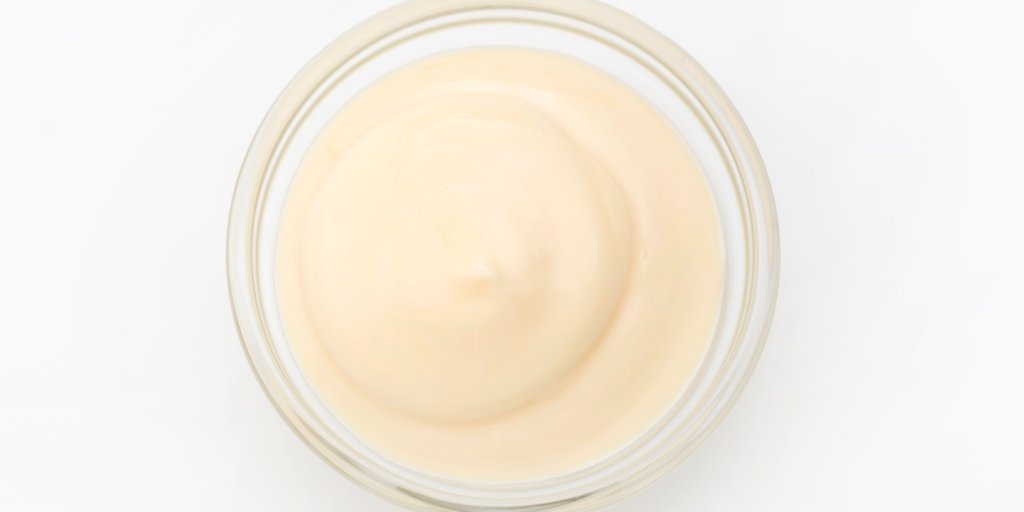
Versions of this one have been around forever, claiming mayo is an underrated skincare secret.
The claim? Mayo will hydrate and nourish your skin.
The process? Slather it on!
The reality? Ew.
From allergens like eggs to greasy, pore-clogging oils, to irritants like vinegar and preservatives, mayo is a recipe for unhappy skin. Plus, it’s just not something you’d want on your face.
You’re more likely to create redness and irritation than the dewy skin you’re looking for.
The verdict? Leave the mayo on your sandwiches!
3. Gelatin Peel-Off Face Masks
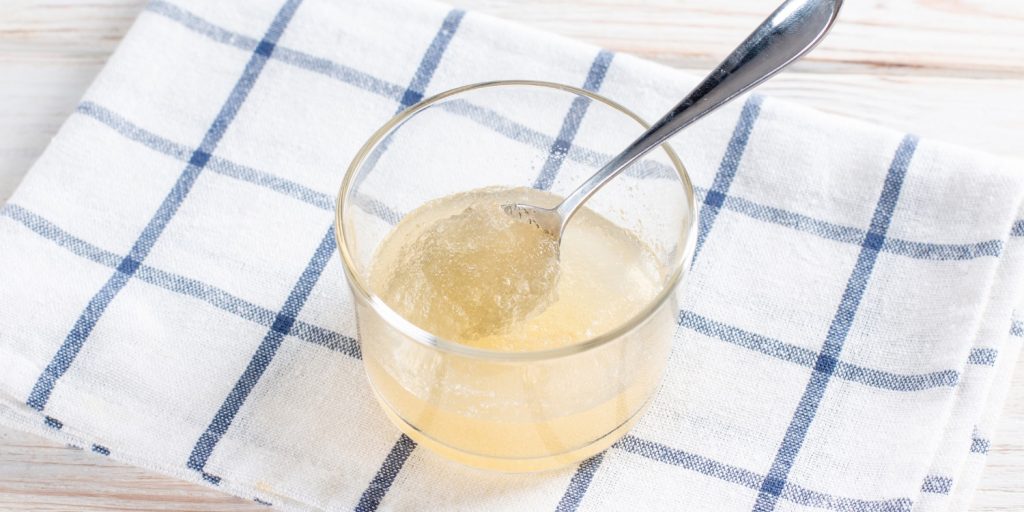
Last but not least, we have the gelatin face mask.
The claim? Gelatin boosts collagen, tightens skin, and leaves you glowing.
The process? Add unflavoured gelatin powder to warm water and stir until dissolved. Apply to your face, let dry, and peel it off or wash it away.
The reality? Unhelpful at best, skin damage at worst.
There’s really no evidence that gelatin boosts collagen, and any smoothing or tightening fades pretty darn fast.
The real issue with this DIY mask is the peel-off part. These masks get pretty solid, and pulling them off your face can rip and tear at your skin. This can create tiny spots for dirt and bacteria to enter, leading to irritation, inflammation, and even accelerated aging.
The verdict? Nobody is ready for this gelly. Put the gelatin back in the pantry and walk away!
Looking for a fabulous face mask? Try VMR’s Cryo-Firming Mask! With Collagen and Elastin and key anti-oxidants Vitamins A, C, E, plus Vitamins D3, K and B Complex, this clay mask soothes, hydrates, firms and rejuvenates your skin.
Takeaway
Online skincare hacks and tips may promise miraculous results, but they often do more harm than good. At the end of the day, skincare isn’t about quick hacks or viral fads. It’s about consistent, gentle care that’s tailored to your skin type and protects your skin barrier.
If you’re looking for a glow boost, treatments like facial acupuncture can support healthy circulation, boost collagen, and rejuvenate your skin naturally— without the risks of a DIY gone wrong. After all, gorgeous skin isn’t about shortcuts, it’s about smart care.
While DIY has its place, your face deserves better than snacks and craft supplies. Choose products that are designed with your skin in mind, and you’ll glow for all the right reasons.
The takeaway? Your skin isn’t a science experiment! Skip the hacks and stick to what works.
**********
Eileen Fauster of Essential Balance is a Registered Acupuncturist and Registered Holistic Nutritionist who specializes in skin care. Eileen helps clients by using the Vienna Mei Ren non-surgical acupuncture facelift, which combines the best acupuncture needles and techniques with a beautifying skin rejuvenation regime.
* Resources:
10 DIY ingredients that may harm your skin. Bentica Beauty. (n.d.). https://www.bentica.in/blogs/bentica-beauty/10-diy-ingredients-that-may-harm-your-skin
Caramela, S. (2025, April 6). Stop rubbing raw egg on your face, experts beg. VICE. https://www.vice.com/en/article/stop-rubbing-raw-egg-on-your-face-experts-beg
Cleveland Clinic. (2023, June 29). What is your skin’s pH and why does it matter? https://health.clevelandclinic.org/what-is-skin-ph
Eigenmann, P. A. (2000). Anaphylactic reactions to raw eggs after negative challenges with cooked eggs. Journal of Allergy and Clinical Immunology, 105(3), 587–588. https://doi.org/10.1067/mai.2000.104255
Mioduszewski, M., & Beecker, J. (2015). Phytophotodermatitis from making sangria: A phototoxic reaction to lime and lemon juice. Canadian Medical Association Journal, 187(10), 756–756. https://doi.org/10.1503/cmaj.140942
Schwarcz , J. (2018, January 20). Do activated charcoal face masks actually work?. McGill University Office for Science and Society. https://www.mcgill.ca/oss/article/you-asked/do-activated-charcoal-face-masks-actually-work



